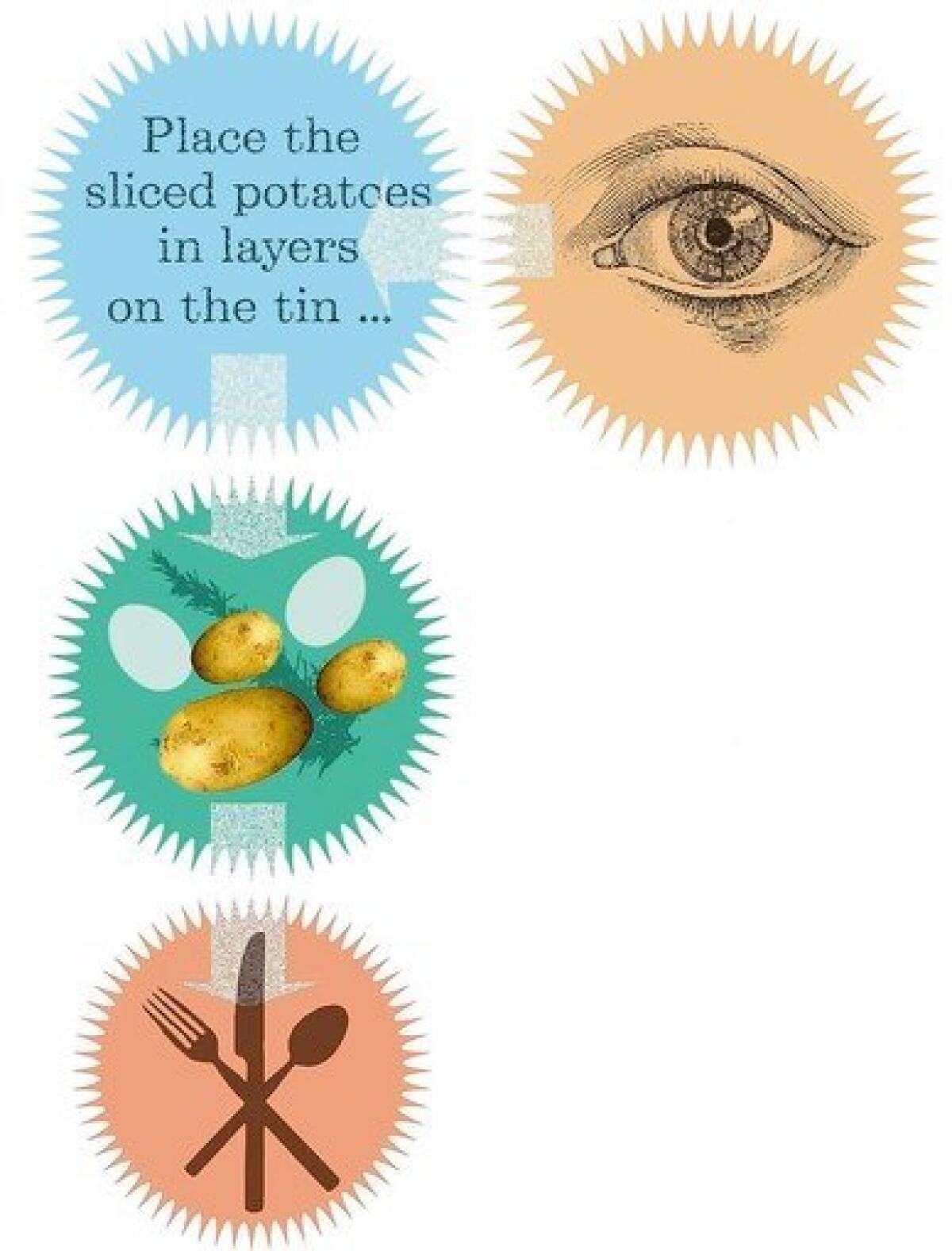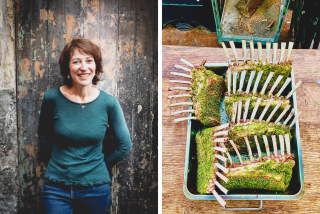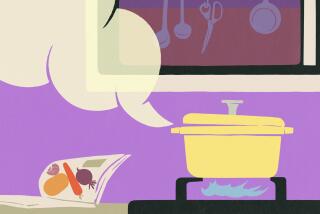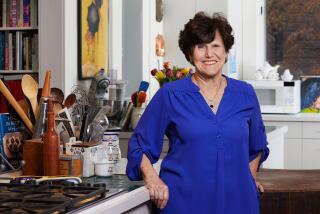Recipes that speak plainly

Ever since I picked up my first Elizabeth David book, I’ve been enamored of her prose recipe style. And by that I mean recipes written in a minimalist way, not in numbered steps, almost as a narrative. No long reel of ingredients. A few sentences or paragraphs. That’s it.
Most of her recipes are short enough that two or three or even four can fit on each page. The Penguin paperbacks are small enough to slip into a pocket or a backpack and see you through a summer — or a lifetime — of cooking. She fits more than 1,000 recipes into a mere 217 pages.
David, a prose stylist, was the spiritual opposite of Julia Child, whose recipes in “Mastering the Art of French Cooking” could run to pages as she struggled to explain each step and head off every mistake a fledgling cook could possibly make. David just assumes the reader has both common and kitchen sense. Her recipes aren’t earthshakingly original, just simple and delicious, the kind of food people have been cooking in France or Italy or Spain or Greece for hundreds of years.
I don’t want or need the cookbook author to hold my hand every step of the way. I like to get a quick overview — what’s needed, the essential verbs we’ll be using — fix those in my mind and then get on with it. Working from a sketch instead of a detailed map forces you to pay attention, and that more than anything else is what will make you a good cook. Every chicken is different, every stove. Some beans cook in an hour. Others take practically the whole day. Reduce a sauce not for a certain number of minutes but until it looks and tastes right. How will you know? By tasting, tasting, tasting.
Another pocket-sized cookbook worth knowing is “French Cooking in Ten Minutes,” by Edouard de Pomiane, the Paris-born son of Polish émigrés, which dates from 1930 — long before blenders, food processors or microwaves. French cooking in 10 minutes? Really? But De Pomiane accomplishes the goal by writing in clear, assured prose. His verbs are plain: wash, gut, roll in flour, fry, serve.
First instructions? “Light your broiler as soon as you walk in the door, at the same time you put your pot of water on the fire, before taking off your coat and hat.” You’ll figure out something.
A recipe for skate with black butter is about 120 words. It takes him seven concise sentences to tell how to clean and prepare fresh sardines and fry them in “a little smoking oil or very hot butter.” Four sentences to prepare flounder meunière. He takes one recipe and accessorizes it differently, like a little black dress. And instead of instructing us to wash, chop and then measure parsley, he tells us we need a bunch of parsley the size of a bunch of violets. And we understand perfectly.
Another favorite is Patience Gray’s 1986 book, “Honey From a Weed.” Following her stone-sculptor lover from quarry to quarry, she had to make due with mostly primitive kitchens and the small batterie de cuisine she carried from place to place. This forced her to strip her cooking to basics, using just what was around her in any season. She foraged. She grew gardens. She bartered.
And she wrote about it with economy and wit and poetry, slipping in snippets of history and lore, to create a scrapbook of cooking in the Mediterranean. She’ll put on a pot of beans, throw in some herbs and then set out to swim, knowing that the dish will be ready when she returns. Hers is the most soulful cookbook I know, because her recipes are more about the essence of a dish than step-by-step instructions.
More to Read
Eat your way across L.A.
Get our weekly Tasting Notes newsletter for reviews, news and more.
You may occasionally receive promotional content from the Los Angeles Times.






